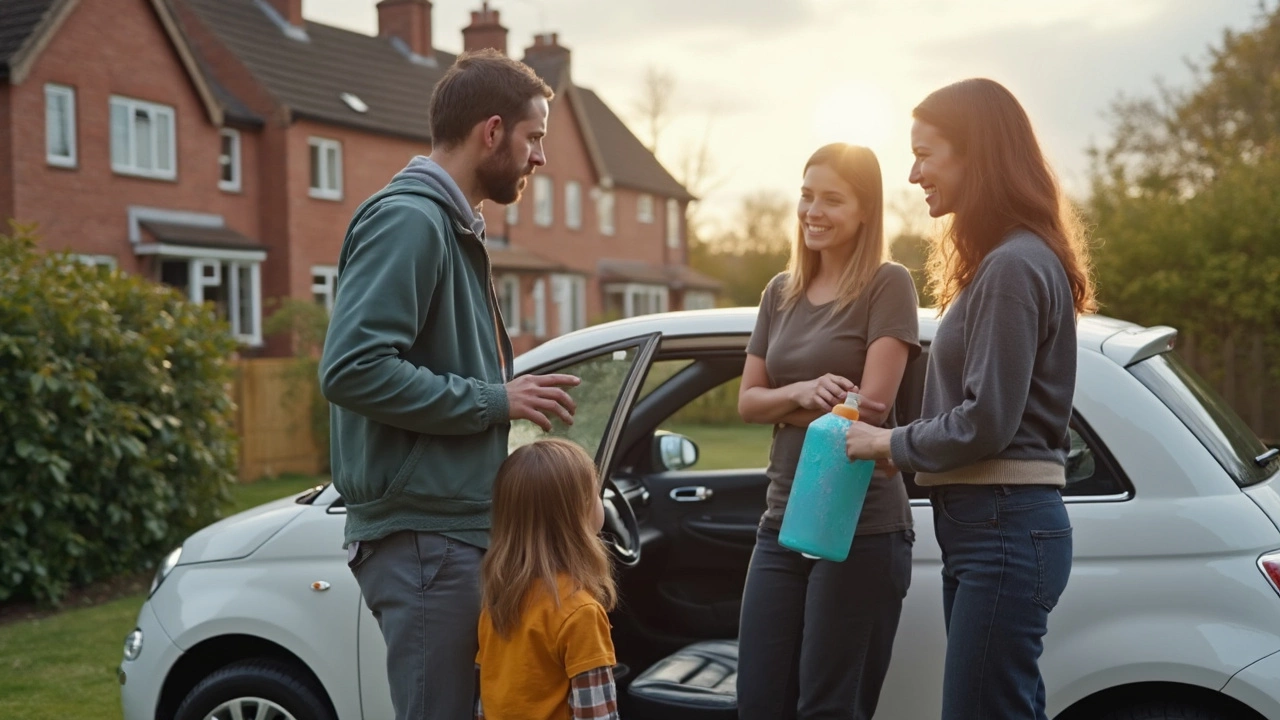Safe Cleaners for Car Detailing: Protect Your Ride and Your Health
When you love your car, you want every product you use to be gentle on the finish, the interior and even the wrap. The good news is you don’t need harsh chemicals to get a showroom shine. Below we break down the safest cleaners on the market, why they work, and how to use them so you avoid costly mistakes.
Why Choose Safe, Non‑Toxic Cleaners?
Traditional automotive cleaners often contain solvents that can eat away at clear coats, degrade vinyl wraps or leave lingering fumes. Safe cleaners are formulated with mild surfactants, biodegradable bases and pH‑balanced formulas that lift dirt without stripping protective layers. They’re also easier on your skin and lungs, which matters if you detail regularly.
For wrap owners, the stakes are higher. A single splash of acetone can ruin a full‑body wrap in seconds. Using a wrap‑approved cleaner ensures the film stays flexible, the colors stay vivid and the adhesive bond isn’t weakened.
Top Safe Cleaning Products for Every Area
Exterior paint: Look for a water‑based wash soap with a neutral pH (around 7). Brands like EcoCar Wash or Simple Shine let you scrub away road grime while keeping the clear coat intact. Rinse with filtered water to prevent mineral spots.
Wrap surfaces: A dedicated wrap cleaner such as WrapGuard Foam or a mild citrus‑based solution works wonders. Apply with a soft microfiber, let it sit briefly, then wipe clean. Avoid any product that says “Renu‑Wax” or “Degreaser” unless it’s specifically marked safe for wraps.
Interior plastics and vinyl: A blend of distilled water and a few drops of gentle dish soap makes a DIY safe interior spray. For stubborn stains, try a product labeled “non‑abrasive interior cleaner” that contains plant‑based solvents. Test in a hidden spot first.
Leather seats: Use a leather conditioner that’s free of petroleum distillates. Ingredients like lanolin and natural oils keep the leather supple without staining.
Glass: A simple solution of one part vinegar to three parts water clears streaks without ammonia. Finish with a lint‑free cloth for a crystal‑clear view.
All these products share a common trait: they’re safe for the environment and for you. They won’t damage masks, gloves or the car’s surface, and they won’t leave behind toxic residues that attract dust.
To get the best results, follow a consistent routine: pre‑wash to remove loose debris, use the appropriate safe cleaner for each surface, and dry with clean, non‑scratch towels. Skip the temptation to mix chemicals – the reaction can create harmful fumes and strip finishes.
Whether you’re a professional detailer or just polishing your own ride on weekends, choosing safe cleaners saves money in the long run. Fewer scratches, no need for costly re‑wraps, and a healthier workspace are worth the small price difference over harsh chemicals.
Ready to upgrade your detailing kit? Start with one safe wash soap, a wrap‑approved foam, and a microfiber set. You’ll notice the difference on the first wash – a gleam that looks like you just left the dealer, without any risk of damage.
Ever considered grabbing that bottle of Dawn dish soap for a quick car interior clean-up? Some folks swear by it, but is it actually safe for your dashboard, seats, and other surfaces? This article breaks down what happens when dish soap meets your car’s inside, what professional detailers really recommend, and easy tips to get spotless results without regret. Get the real facts before you scrub. We’ll make sure you avoid any costly mistakes.

